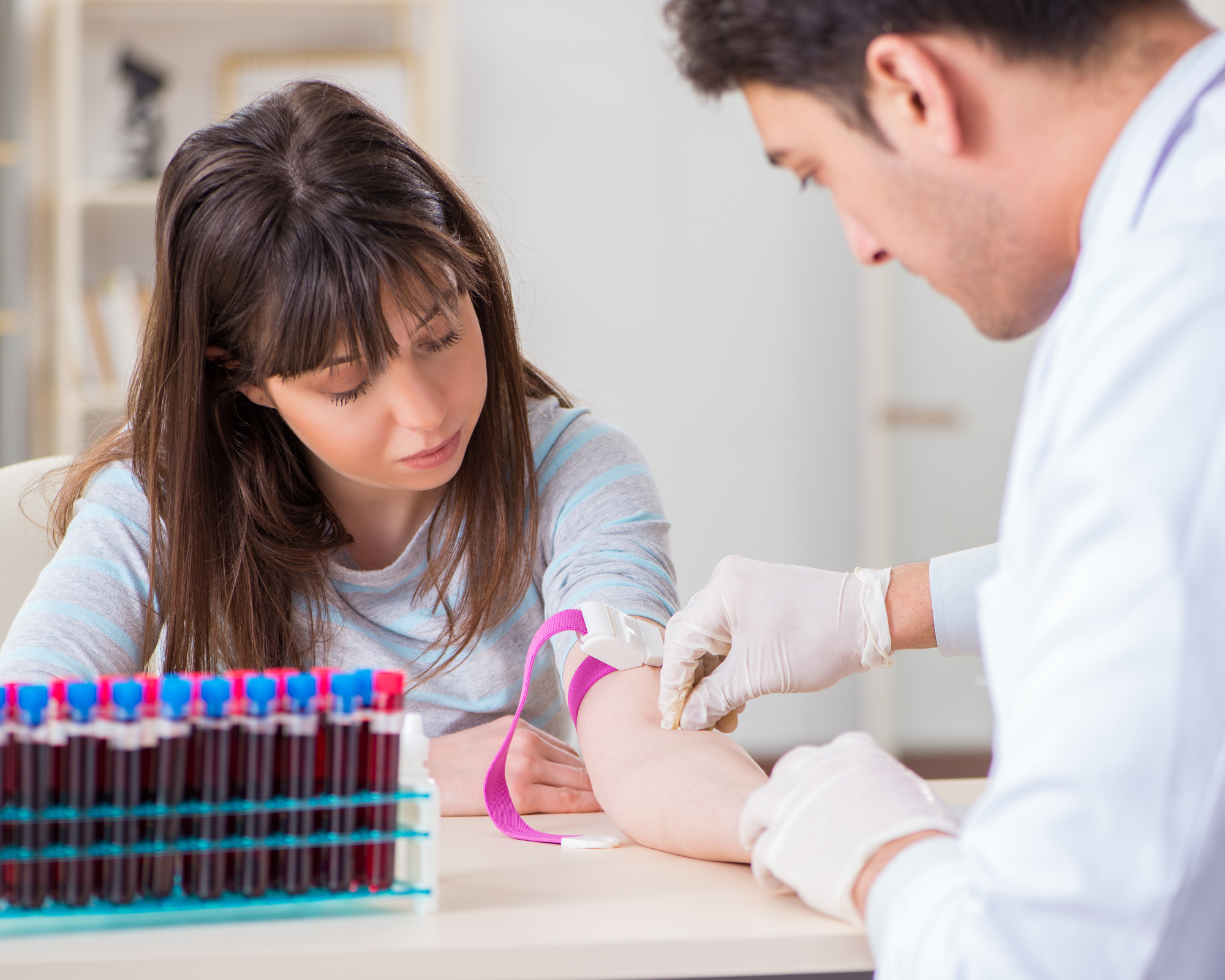Sex Tips All College Students Need To Know
As an incoming college freshman, you're probably preparing to meet your new roommate, deciding which campus clubs to join, and searching for the cheapest textbooks. And as your first day draws near, you may feel equally anxious and terrified about entering the college dating pool. But before diving headfirst into the campus hookup culture, here are seven safe sex tips to minimize your risk while you enjoy your newfound independence.
1. Get an HPV Vaccine
Human papillomavirus (HPV) is the most common sexually transmitted infection. Most people who have sex will get HPV at some point. But, in most cases, the infection is harmless and goes away on its own. Still, some virus strains can lead to genital warts or mouth, throat, cervix, and anus cancers. You can get HPV by having vaginal, anal, or oral sex with someone with the virus, even if your partner has no symptoms. HPV is also spread through close skin-to-skin touching during sex.
So, to lower your chances of getting the virus, get vaccinated. The vaccine is given as a two or three-dose series. The vaccine is safe, effective, and recommended to everyone between the ages of 11 through 26.
2. Know Your STI Status
In 2018, young adults under 25 accounted for almost half of the new sexually transmitted infections (STI) in the United States. Sexually Transmitted Infections are passed from one partner to another through oral, anal, or vaginal sex. These infections caused by bacteria, viruses, or parasites may cause mild symptoms that are easily ignored or that may not cause any symptoms at all. So, you can pass the infection onto your sex partner and not even know it.
Symptoms may include:
● Increased vaginal discharge
● Changes in the color of your vaginal discharge
● Strong or odd-smelling vaginal odor
● Bleeding between periods
● Pain with sex
● Genital itching, burning
● Penile pain or discomfort
● Discharge from the penis
● Swollen testicles
● Unusual sores or bumps in your vagina, penis, anus, or mouth
Infections in your rectum (bottom) are also possible. You should look out for:
● Rectal discharge
● Pain in the rectum
● Anal itching
● Soreness or bleeding
● Painful bowel movements.
Using condoms or dental dams and screenings are essential to maintain your health. Leaving infections untreated can increase your risk for other STIs and cause infection in the urethra (the tubes that carry the urine from the bladder to the outside of the body). Pelvic inflammatory disease (PID), miscarriages-term labor, and infertility are also possible.
3. Use Condoms
External (male) and internal (female) condoms are inexpensive and easily accessible. You can pick them up at a local pharmacy, your provider's office, or your college health center for free or a minimal cost. Using condoms consistently and correctly every time you have sex protects you from unplanned pregnancy and sexually transmitted infections, including HIV.
To maximize your protection:
● Use a condom every time you have sex
● Check the expiration date, and never use an expired condom
● Always store your condoms in a cool, dry place.
● Check for tears or flaws in your condoms
● Use latex or polyurethane condoms
● Only use a water-based or silicone-based lubricant to prevent the condom from breaking
Knowing you're always prepared means you don't have to stress when an unexpected opportunity for sex happens.
4. Choose a Birth Control Method
Being a college student can be hectic: between classes, jobs, and relationships, there's not much time for much more. So, if you are planning on being sexually active, you should consider getting a consistent form of birth control. Choosing the right birth control method is essential but can be overwhelming. Honestly, the best birth control method for you is the one that fits your busy college lifestyle and that you will use correctly!
Each birth control method has pros and cons, so be sure you know all your options. Hormonal birth control methods like the pill, intrauterine device (IUD), or arm implant may help your periods become more predictable, shorter, lighter, or stop altogether. You may also notice that you have fewer cramps as well!
Expected side effects of hormonal birth control include headache, nausea, changes in your mood, dizziness, and breast tenderness. Still, these symptoms usually go away after a few months. Other possible side effects are changes to your period, like spotting and decreased or increased bleeding.
Hormone-Free birth control like the copper IUD (Paraguard) can provide a safe alternative for active sex life. This IUD is more than 99 percent effective in preventing pregnancy, doesn't contain any hormones, and can also be used as a form of emergency contraception. However, you may have more painful periods and increased bleeding during the first month of using the copper IUD.
Even though most contraceptives are highly effective at preventing pregnancy, not all protect against STIs. So, use an external latex condom and your contraception to reduce your risk for HIV and other STI infections.
5. Get to Know Plan B
Plan B or the emergency contraception pill can keep you from becoming pregnant after having unprotected sex. A few choices are available, and some are available without a prescription.
Currently, there are two types of emergency contraceptive pills:
● Ella: Otherwise known as Ulipristal: This pill can be taken up to 5 days after unprotected sex, and it works as well on day five as it does on day one. Ella is only available by prescription.
● Plan B: Also known by other names like AfterPill, My Way, etc. Plan B is available over the counter without a prescription and works best when it's taken within three days of having unprotected sex. However, you can still take Plan B up to 5 days after intercourse. This pill may not work well if you have a BMI greater than 30.
Both plan B and Ella are taken as a one-time dose. The sooner you take your pill, the better it will work. Even though it might be tempting, do not take extra birth control pills. This will not decrease your chance of getting pregnant-it will only make you feel sick.
While emergency contraception does provide some reassurance, it's essential to know that it doesn't prevent all pregnancies. So, schedule an appointment at your campus health center if you don't get your next expected period even after taking emergency contraception.
6. Don't do it, Drunk.
More than half (55%) of first-year college students report drinking heavily occasionally before or during their last hookup experience. As a result, these students were almost 1.5 times more likely to have penetrative sex than students who reported no alcohol use. Alcohol is often used to loosen inhibition, but consuming too much can impair judgment and make communication harder.
For example, a 2016 study reported most sexual assaults on campus involved alcohol or other substances, and 1 in 5 college women experience sexual assault during their time in college. And according to the Bureau of Justice Statistics, women who identify as lesbian, bisexual, or gay are more likely to experience sexual assault on college campuses than heterosexual women.
Overconsuming alcohol can make you less aware of what is happening around you, making it more challenging to make a safe and informed decision.
7. Learn the Facts About Monkey Pox
As the Monkeypox outbreak has grown, so has the confusion about this public health emergency. Monkeypox is a rare disease caused by the monkeypox virus (the same family of viruses that causes smallpox). Monkeypox is rarely fatal.
Currently, the virus is spreading primarily among gay and bisexual men. So, if you are a member of these groups, the best thing you can do to protect yourself is to get vaccinated. The preferred vaccine is a two-dose series. You can expect maximum protection about 14 days after receiving the second dose of your vaccine.
Talk with your partner about any rash on or near the genitals or other areas of the body. You should also communicate about any flu-like symptoms experienced like fever, chills, muscle aches, etc. If you or your partner has or recently experienced these symptoms or have a new or unexplained rash anywhere on your body, don't have sex and follow up with a provider on campus.
**Bonus Tip** Get to Know Your Campus Health Center
As you settle into your new home for the next few years, take the time to learn about all the services and resources that your campus health center provides. Staffed by licensed and board-certified providers, campus health is your go-to for in-person or virtual appointments. Services that may be available are STI testing, immunization, and gynecology visits. In addition, your campus health center may also provide pharmacy services, mental health, and nutrition counseling. Some centers even offer resources for free, like:
● Condoms
● Dental dams
● Personal lubricant samples
Each student center is different, so check them out once you settle into your dorm space to find out about what they offer and the associated fees.
Safer Sex on College Campuses
College is a time for learning, growing, and, of course, having fun! But with campus culture dominated by one-night stands and romantic flings, be sure to take steps to keep yourself safe as you enjoy your time away from home.
School is back in session, and so many new adults are collegebound. So, it’s never too late to be given the talk to make sure you’re safe when exploring your sexuality, and a significant part of Lala's Bedtime Tales mission is to provide a safe space and judgment-free zone to educate yourself on sexual health & wellness. The Sexual Health & Wellness corner will have monthly articles dedicated to continuous education on living a positive and sexually healthy lifestyle. Subscribe to Lala's Bedtime Tales Newsletter and follow @LalasBedtimeTales on social media to never miss any sexual education to help you live the healthiest life possible. Also, check out the Lala's Bedtime Tales Podcast and Lala's Oh So Exclusive Patreon account for even more content! If you’re browsing for sexy pleasure products or cute giftable items, then check out Lala’s Pleasure Shop.
Lala's Bedtime Tales Disclaimer
The content displayed on this website is the intellectual property of LaLa's Bedtime Tales "The Creator". Without our written consent, you may not reuse, republish, or reprint such content. The subject matter on LaLa's Bedtime Tales is provided by licensed medical providers and from reputable sources but is meant for educational and informative purposes only. It is not meant to be used for self-diagnosing or self-treatment any health-related conditions. While the information has been peer-reviewed by a licensed healthcare provider for accuracy, we cannot guarantee any inaccuracies as healthcare is rapidly evolving, and this information should not be used to substitute professional medical advice in person. The Creator is not responsible or liable for any damages, loss, injury, or any negative outcomes suffered as a result of personal reliance on the information contained on this website. The Creator also makes no guaranteed positive outcomes. Information is also subject to change as needed without notice, and "The Creator" reserves the right to do so.
Please consult your healthcare provider before making any healthcare decisions and ask for guidance for specific health conditions. Please do not disregard the advice of your healthcare provider or delay seeking care for health care conditions.










